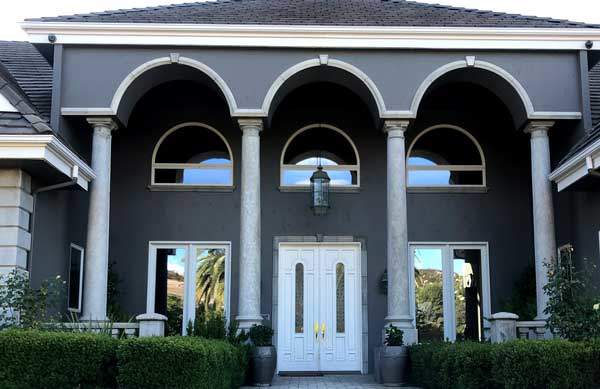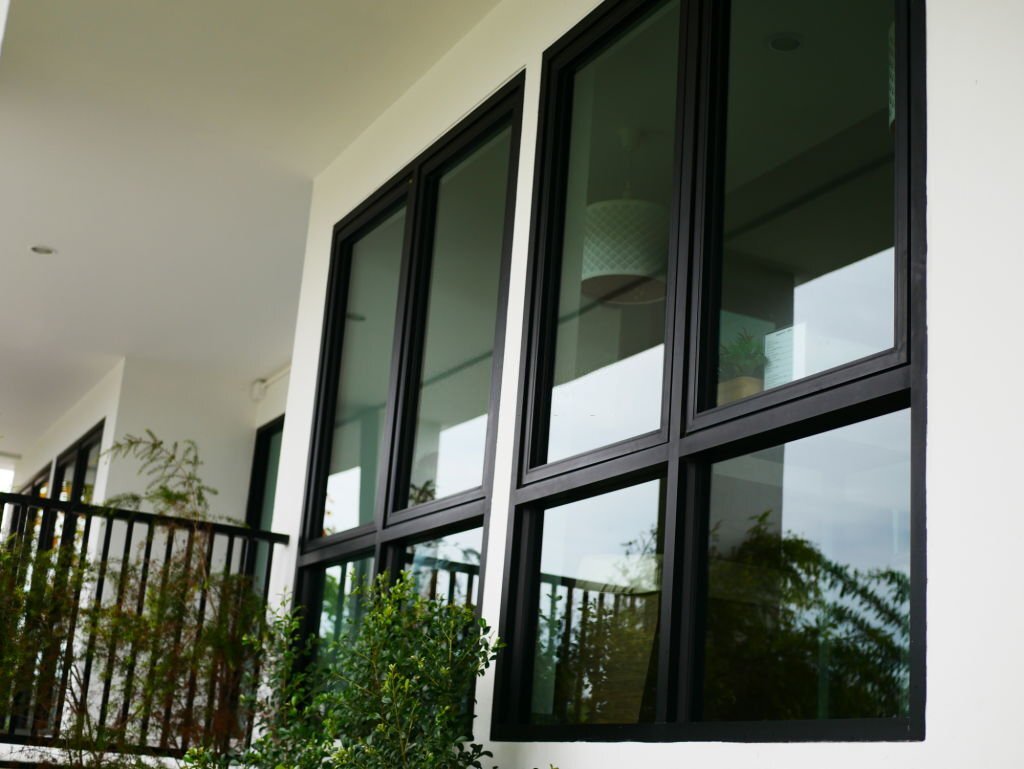Discover the Long-Term Perks of Residential Window Tint for Your Home
Just How Residential Home Window Tinting Enhances Your Home's Energy Performance
Residential window tinting offers a compelling solution for home owners seeking to boost energy performance within their home. By using specialized films to home windows, it efficiently lowers warm transfer, thereby supporting interior temperatures and minimizing the requirement for excessive home heating or cooling. This not only stops energy intake however additionally offers an extra comfortable atmosphere by minimizing glare. Comprehending the subtleties of how tinting jobs and selecting the suitable kind for your home can be pivotal. Strangely enough, what variables should one consider before making this financial investment?
Comprehending Home Window Tinting
Comprehending home window tinting is essential for house owners seeking to improve both convenience and power effectiveness in their living rooms. Residential Window Tint. Window tinting includes the application of a slim film to the interior or outside surface of glass home windows. This film can significantly modulate the amount of sunshine and heat that enters a home, therefore influencing interior environment problems
There are various types of home window tinting movies available, each with unique homes. As an example, colored films soak up solar power, while reflective films deflect it far from the glass surface area. Ceramic films supply an equilibrium of exposure and warmth denial, making them a preferred option among property owners. The performance of home window tinting is commonly measured by its Visible Light Transmission (VLT) percentage, which indicates exactly how much light can travel through the film.
Benefits of Power Effectiveness
Window tinting not just improves aesthetic appeals yet also plays a significant duty in boosting power effectiveness within residential areas. By decreasing warm transfer through home windows, tinted movies develop an extra secure indoor environment, which can lead to substantial reductions in power intake for cooling and heating. This energy effectiveness translates right into reduced energy costs, offering homeowners with considerable long-term cost savings.

In addition, window tinting enhances the convenience of living areas. By reducing glow and obstructing damaging UV rays, tinted home windows produce an even more pleasurable environment, which can lead to enhanced well-being for owners. The security against UV rays additionally aids maintain furnishings and floor covering from fading, adding to the longevity of house products.
How Tinting Functions
Tinting films run through a mix of advanced products and technologies made to control the quantity of solar power getting in a home. Largely made up of polyester, these films often integrate metallic or ceramic fragments that absorb and show warmth. This double capacity allows them to dramatically decrease the infiltration of ultraviolet (UV) rays and infrared radiation while permitting visible light to travel through.
The effectiveness of window tinting is gauged by its solar heat gain coefficient (SHGC), which suggests just how much solar energy is transferred via the window. Lower SHGC worths are preferable as they signify better warmth rejection. Furthermore, home window tints can include a variety of shades, enabling home owners to customize their aesthetic preferences while boosting power performance.
Furthermore, these films function as an obstacle, protecting against heat loss during chillier months by showing indoor heat back right into the space. This thermal insulation effect matches the air conditioning advantages obtained during warmer months, contributing to a balanced indoor climate year-round. By handling solar power properly, household home window tinting not only enhances comfort however also plays an important function in lowering power intake and decreasing energy expenses.
Selecting the Right Tint

There are numerous kinds of home window movies available, consisting of colored, metalized, and ceramic. Dyed films are cost-efficient but may have restricted resilience. Metalized films supply better warm denial yet can hinder electronic signals. Ceramic movies give outstanding warm control without endangering visibility and are extremely sturdy, making them a popular option.
Noticeable light transmission (VLT) is another important factor, as it suggests the amount of all-natural light that can pass through the tinted glass. Homeowners ought to choose a tint with a VLT that matches their lighting preferences while still offering get more appropriate glow reduction.
Furthermore, examining the solar warm gain coefficient (SHGC) can help establish how well a tint can block heat from sunlight. A lower SHGC shows far better warmth control, inevitably boosting energy performance.
Installation and Upkeep Tips
Correct setup and maintenance are essential elements in maximizing the advantages of domestic window tinting. To accomplish optimal outcomes, it is a good idea to hire a certified expert for installation. This makes sure that the tint is used properly, avoiding air bubbles, creases, or misalignment that might compromise efficiency. Professionals additionally utilize specialized devices and methods, which can boost the toughness and efficiency of the color.
Complying with installment, upkeep is important to extend the life of the home window movie. It is advised to wait at the very least look here 30 days before cleaning the colored windows to enable the adhesive to treat totally.
Dealing with these issues promptly can prevent more damages and preserve energy efficiency. By sticking to these setup and maintenance tips, homeowners can guarantee their window tinting continues to give substantial power cost savings and comfort for years to come.
Verdict
Finally, domestic window tinting acts as a reliable remedy for boosting energy efficiency within homes. By lowering warmth transfer and obstructing damaging UV rays, window movies add to More Help decrease power usage and improved interior comfort. The option of suitable tinting materials, along with correct setup and maintenance, better takes full advantage of these benefits. Eventually, window tinting stands for a sustainable financial investment that not only decreases utility costs however additionally advertises a comfy living atmosphere throughout the year.
Home window tinting entails the application of a thin film to the inside or outside surface area of glass windows. By decreasing warmth transfer via windows, tinted movies produce an extra secure indoor climate, which can lead to considerable decreases in power consumption for heating and cooling.The performance of home window tinting is gauged by its solar heat gain coefficient (SHGC), which suggests exactly how much solar power is sent through the window. By managing solar power properly, residential window tinting not only improves convenience however likewise plays an essential duty in reducing energy consumption and lowering utility expenses.
By decreasing warm transfer and obstructing unsafe UV rays, window films contribute to lower energy consumption and improved indoor comfort.